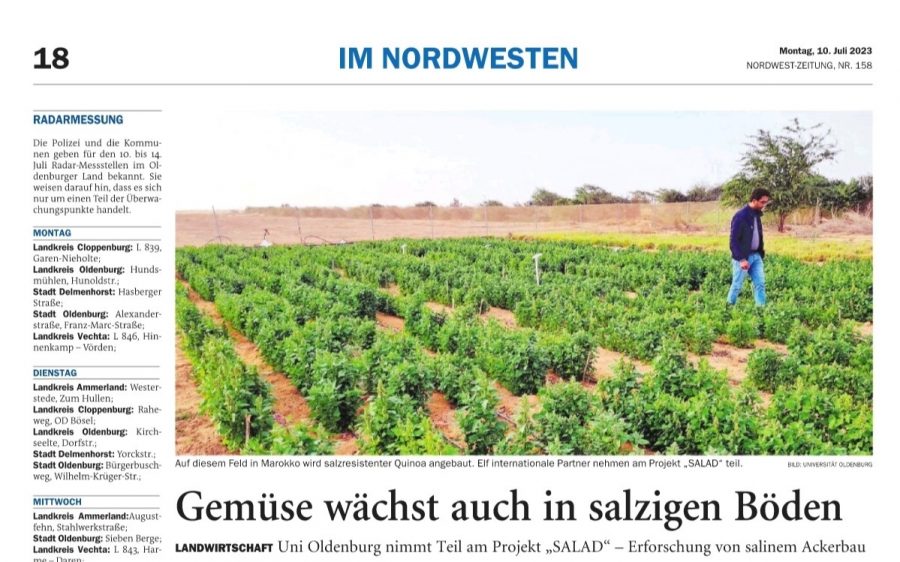In the media Vegetables also grow in salty soils

OLDENBURG/TEXEL. (arh) For thousands of years, farmers all over the world have been struggling with an almost insoluble problem: salt. Heavily used fields become saline over time - ancient Mesopotamia, for example, was a granary of the Mediterranean region, but today much of the land there is barren. At the same time, there are also areas around the world - mostly close to the sea - where salt-resistant natural plants grow, but no conventional arable crop likes to sprout. Leena Karrasch (researcher Department of Ecological Economics at the University of Oldenburg) is convinced that this problem can be solved. She is working on the SALAD project (Saline Agriculture for Adaptation), whose participants are testing arable farming in saline soils in field trials around the world.
Agricultural hardship
"Salinisation is a natural process, but it is influenced by humans," knows the doctor, who works at the Centre for Environmental and Sustainability Research. "In Germany, this is not - yet - an issue because there is no acute need here," says Karrasch. But that is different for some of the project partners in Morocco, Egypt or even Italy: "In Morocco, the need for water for food has to be weighed against the need for drinking water, so it's a completely different situation than here." The possibility of farming in soils that were previously considered infertile would therefore offer new security of supply in the future - at some point, Karrasch is sure, probably also in Germany.
Spinach with salted edges
In SALAD, however, the experimentation is not open-ended in all directions, but specifically with four types of vegetables. Karrasch: "We have tomatoes, potatoes, quinoa and New Zealand spinach in cultivation." The field trials closest to Oldenburg are being conducted by Dutch project partners on the island of Texel. Karrasch has already visited the plant there - and also tasted the "salty vegetables": "The potatoes are surprisingly sweet, but the spinach is really very salty," she says. "You can only eat a few leaves of it directly, otherwise it becomes too much." However, the spinach, on which salt is even deposited in visible crusts on the edge of the relatively thick leaves, would make a fine ingredient in a mixed salad.
Developing solutions
Meanwhile, there have already been several projects dealing with arable farming under these adverse conditions. "We are literally building on results from previous projects, but here, in addition to field trials, we are also looking at concrete application and marketing opportunities," Karrasch explains. "We can not only point out problems here, but also develop solutions right away." Because it happens far too often that research ends up being "for the drawer", i.e. the findings do not find their way into the economy and practical application. However, the Food and Agriculture Organisation of the United Nations will use the results of SALAD directly in practice after the end of the project, the doctor knows. "Often it is purely a question of time that someone has to process and communicate such results. In this respect, it is nice that the chain continues at this point."
University of Oldenburg takes part in the "SALAD" project - research into saline arable farming
Source: Nordwest-Zeitung - Gemüse wächst auch in salzigen Böden
 saline agriculture
saline agriculture